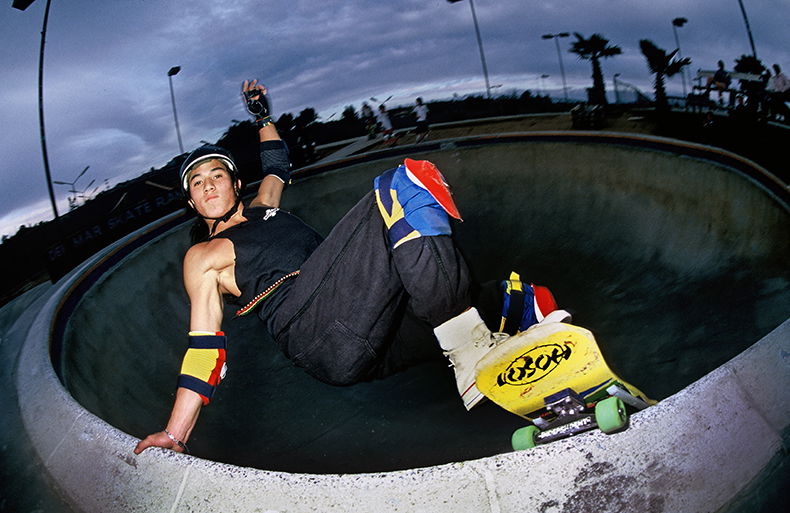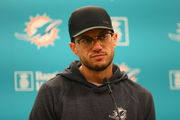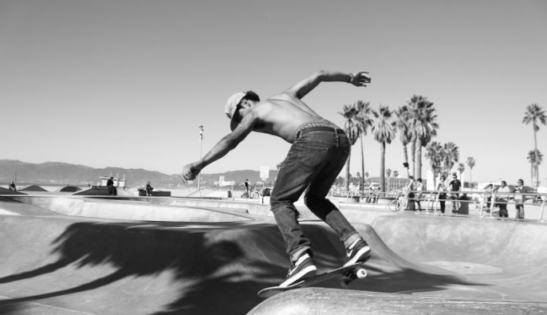

Who would have thought that skateboarding, once a niche pastime embraced by rebellious youth in the 1980s, would evolve into a global phenomenon and an official Olympic sport? Over the past two to three decades, skateboarding has not only transformed the sports landscape but also left an indelible mark on fashion culture. The baggy jeans, oversized hoodies, and edgy outfits that defined the skateboarding scene have become fashion staples worldwide. It all began with kids blasting pop-punk music on jukeboxes, perfecting their tricks on local ramps. Among these pioneers was Christian Hosoi, famously known as “Holmes,” who revolutionized the sport after turning professional at just 14.
Watch What’s Trending Now!
Today, with over 49 million viewers worldwide, skateboarding is a cultural force to be reckoned with. “This sense of representing your neighborhood, your skate park, your ramp—whatever it may be—is the formula that led to skateboarding’s explosion on the global stage,” tells legendary skater Christian Hosoi in an exclusive interview with EssentiallySports. This week’s episode also showcases another legendary figure from the world of skateboarding.
Join us on the 39th Episode of EssentiallySports Think Tank, where our host Trey Holder, delves deep into this evolution with Hosoi and Billy Tuchscher (CEO of the Skateboarding Hall of Fame), exploring the journey of skateboarding from its roots to its current status as an Olympic sport.
ADVERTISEMENT
The Many Faces of Skateboarding: Exploring the 9 Styles
Skateboarding isn’t just one sport; it’s a collection of diverse styles, each with its unique culture and following. From the streets of California to skate parks around the world, skateboarding has evolved into nine distinct styles that showcase the sport’s versatility. “They’re about 65 million Americans that have or do skateboard. It’s been around for about 60 years, a little longer,” says Billy Tuchscher.
ADVERTISEMENT
ADVERTISEMENT
The journey began with the iconic Street Style, originating in California during the 1970s and 80s. This style focuses on using urban environments like stairs, handrails, and benches for tricks. Rodney Mullen, known as the “Godfather of Street Skateboarding,” invented many of the tricks that define Street Style today.
Top Stories
Cowboys Fire Defensive Coordinator Matt Eberflus: Contract, Salary, NFL Earnings & More

Adam Peaty Faces Gordon Ramsay’s Sly Dig Amid Parents’ Controversial Wedding Absence

Russell Wilson Announces Retirement Stance as Giants QB Shares Hidden Injury News

Marina Mabrey Is Raising Eyebrows Again With Fiery Unrivaled Confrontation

Huge Fire Destroys Over 125-Year-Old Golf Club Designed by 5x Open Winner in London – Report

Dolphins Reportedly Indecisive About Mike McDaniel as GM Search Kicks Off

Following Street Style, Vert became a pivotal part of skateboarding’s history. Pioneered by the legendary Tony Hawk, Vert involves aerial tricks performed after launching off the ramp’s edge. It’s one of the most challenging styles, requiring incredible skill and precision. Vert is also one of the styles, responsible for the skateboarding explosion back in the 1980s.
ADVERTISEMENT

Then there’s Park Skateboarding, a blend of Street and Vert styles, where technical tricks and aerial maneuvers take center stage. Another legendary style is Freestyle skateboarding, dating back to the 1960s, which is one of the oldest forms of competitive skateboarding, characterized by its focus on creativity and performance.
ADVERTISEMENT
Downhill Skateboarding is one of the sport’s most extreme forms, involving high-speed races down steep hills. Cruiser Skateboarding serves a more practical purpose, focusing on transportation rather than tricks. The final three styles—Longboard Dancing, Freeride, and Adaptive Skateboarding—each bring something unique to the table. Longboard Dancing involves dance-like movements on a longboard, Freeride combines elements of Downhill and Freestyle, and Adaptive Skateboarding is designed for skaters with physical disabilities.
Among all these styles, Vert stands out as one of the most complex. Mastering Vert requires not just technical skill but also the ability to control one’s body in mid-air, a feat that only the most dedicated skaters can achieve. While the Olympics have yet to embrace Vert, the current focus on Street and Park styles has produced champions who are setting the stage for the sport’s future.
ADVERTISEMENT
Skateboarding’s Olympic Revolution: A New Era Begins
The global recognition of skateboarding reached a new high during the Tokyo Olympics. The men’s street competition saw Japan’s Yuto Horigome make history by winning the first-ever Olympic gold medal in skateboarding, followed by Brazil’s Kelvin Hoefler with silver and the USA’s Jagger Eaton with bronze. The women’s street competition was equally groundbreaking, with 13-year-old Momiji Nishiya of Japan taking gold, Brazil’s Rayssa Leal, also 13, earning silver, and Japan’s Funa Nakayama claiming bronze.
In the men’s and women’s park styles, Japan continued to dominate. Sakura Yosozumi and Kokona Hiraki secured gold and silver, respectively, with Hiraki becoming the youngest silver medalist at just 12 years old. Great Britain’s Sky Brown, only 13 at the Tokyo Olympics, took home the bronze. The men’s park competition saw Australia’s Keegan Palmer win gold, Brazil’s Pedro Barros silver, and the USA’s Cory Juneau bronze.
The Tokyo Olympics saw Japan as being a leading force in skateboarding and that trend continued during the 2024 Paris Olympics as well. Yuto Horigome won his second gold in men’s street, while Jagger Eaton moved up to silver. In the women’s street competition, 14-year-old Coco Yoshizawa of Japan took gold, and another 14-year-old, Liz Akama, also from Japan, earned silver.
ADVERTISEMENT

ADVERTISEMENT
As Christian Hosoi aptly put it, “The women’s category in skateboarding has not only influenced skateboarding but has influenced the world in general on women’s bases.” Indeed, the rise of women in skateboarding has been a significant trend, and we can expect to see even more exciting developments in the future.
This incredible episode with our two incredible guests is now out! Tune in to esfancast.tv to immerse yourself in the world of skate parks and kickflips as Christian Hosoi and Billy Tuchscher talk all things skateboarding.
The EssentiallySports Think Tank initiative brings together the greatest minds in sports, offering you the chance to learn from the best. With Trey Holder at the helm, these candid conversations reveal the leadership and performance strategies you need to know. This is EssentiallySports Think Tank—where sports meet smart content!
The editor, Mallika Singh, collaborated in writing the article.
ADVERTISEMENT
ADVERTISEMENT
ADVERTISEMENT

